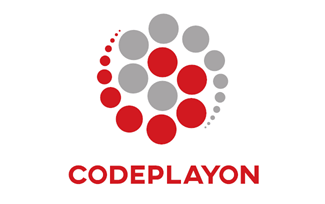Shopify vs. DIY Development: Weighing the Pros and Cons for Your Business
Are you planning to open an online store for the first time? Perhaps you’re contemplating going in a different direction with your website presence? Either way, it’s crucial you select the right platform for your e-commerce business.
This guide explores two of the main options available: Shopify and DIY development.
Shopify
Table of Contents
Shopify is one of the most popular dedicated e-commerce platforms on the planet. Here are its pros and cons:
Pros
- User-friendly interface: Shopify is celebrated for its ease of use. It offers a straightforward, intuitive dashboard that enables users – regardless of technical expertise – to manage their online store with great efficiency.
- Reliability and security: Shopify offers robust security features and reliable hosting. By ensuring secure transactions and uptime, it provides peace of mind for both you and your customers.
- Integrated payment solutions: Shopify simplifies the process of setting up payment gateways. It has its own solution, Shopify Payments, as well as compatibility with other major payment providers.
- Customer support: 24/7 support means you can resolve any issues promptly, which is critical for maintaining uninterrupted operations.
- App ecosystem: A vast array of apps and plugins are available via Shopify. This allows you to extend functionality and further customize your store.
Cons
- Cost: It offers various plans, yes, but Shopify’s recurring costs – including monthly fees and potential transaction fees – can add up, especially for smaller businesses.
- Limited customization: The platform’s templated approach can be somewhat restrictive. However, working with a professional developer, like MageCloud, can open the door to more possibilities than you might expect. They have the expertise to push Shopify sites to the next level.
DIY Development
As the name suggests, DIY development is where you build a platform entirely from scratch. Here are the pros and cons of going this direction:
Pros
- Complete customization: Unlike Shopify, DIY offers total freedom in design and functionality. This enables a truly unique and tailor-made online presence.
- Scalability and control: You have full control over your site’s architecture, which can be optimized for scalability and performance as your business grows.
- Cost-effective in the long run: Initial development costs can be high, but a DIY approach can become more cost-effective over time as it avoids ongoing fees.
- Integration flexibility: A DIY website can be seamlessly integrated with any third-party tool or service.
Cons
- Technical expertise required: Building a website from scratch demands significant technical skill.
- Time-consuming: Compared to a ready-made platform, developing a custom solution, understandably, takes up a lot of time.
- Security and reliability concerns: Unlike hosted options like Shopify, a DIY site requires you to manage your own security and hosting. That raises serious concerns when you don’t have experience in this area.
- Support challenges: You don’t receive a built-in support system with a DIY site. The result is that, if you encounter any issues, these must be resolved in-house or through hired help.
Conclusion: Which Is Better?
Selecting between Shopify and DIY development is dependent on factors like your specific needs, technical capabilities, and resources. For many, Shopify’s ease, reliability, and support make it the more viable choice.



